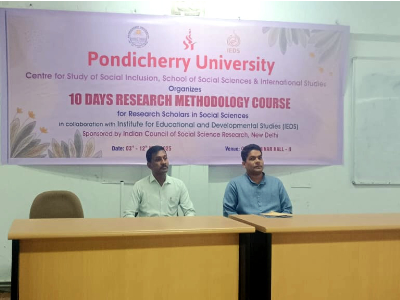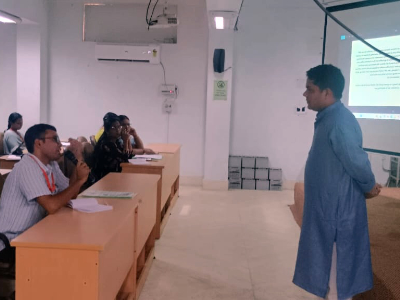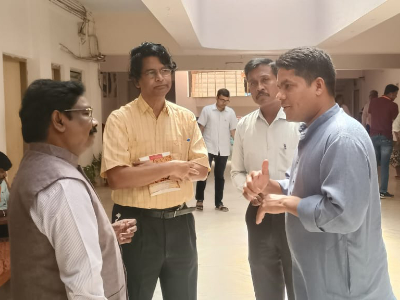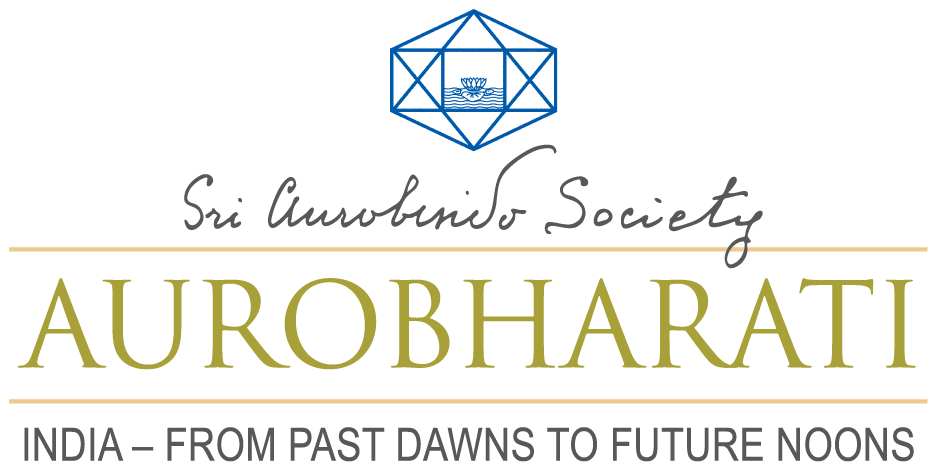Research Methodology Course for Research Scholars in Social Sciences at Pondicherry University
Location: Pondicherry University
Institute: AuroBharati
 Dr. Kishor Kumar Tripathy, Member Secretary of AuroBharati, Sri Aurobindo Society, Puducherry, was invited to deliver a talk at the Research Methodology Course for Social Sciences Research Scholars. This event was co-hosted by the Centre for Study of Social Inclusion at Pondicherry University and the Institute for Educational and Developmental Studies (IEDS) from Noida, with sponsorship from the Indian Council of Social Science Research in New Delhi, taking place from May 3rd to 12th, 2025. During the event, Dr. Prabakaran G., Assistant Professor at the Centre for Study of Social Inclusion, extended a warm welcome to Dr. Tripathy and outlined the program’s goals, highlighting the importance of quality development, research, and innovation.
Dr. Kishor Kumar Tripathy, Member Secretary of AuroBharati, Sri Aurobindo Society, Puducherry, was invited to deliver a talk at the Research Methodology Course for Social Sciences Research Scholars. This event was co-hosted by the Centre for Study of Social Inclusion at Pondicherry University and the Institute for Educational and Developmental Studies (IEDS) from Noida, with sponsorship from the Indian Council of Social Science Research in New Delhi, taking place from May 3rd to 12th, 2025. During the event, Dr. Prabakaran G., Assistant Professor at the Centre for Study of Social Inclusion, extended a warm welcome to Dr. Tripathy and outlined the program’s goals, highlighting the importance of quality development, research, and innovation.
 During the first session titled ‘Understanding India’, Dr. Tripathy highlighted that grasping the essence of India necessitates a thorough investigation into its profound history and civilization, which have been outlined by its sacred geography and varied cultural legacy. He referenced the works of Sri Aurobindo and the Mother, focusing on the themes of spiritual heritage and sustainability. He pointed out that India’s economy has seen remarkable growth in recent years by progress in education and technology. On the international front, India is becoming a more significant player, utilizing its soft power through channels such as spirituality, cuisine, and the arts. There are vast opportunities in India, ranging from its extensive consumer base to its talented workforce. Nevertheless, challenges persist, including social inequality, environmental sustainability, and the need to fully decolonize institutions and mindsets. Comprehensive, interdisciplinary research is crucial to navigate these complexities and guide India’s ongoing development.
During the first session titled ‘Understanding India’, Dr. Tripathy highlighted that grasping the essence of India necessitates a thorough investigation into its profound history and civilization, which have been outlined by its sacred geography and varied cultural legacy. He referenced the works of Sri Aurobindo and the Mother, focusing on the themes of spiritual heritage and sustainability. He pointed out that India’s economy has seen remarkable growth in recent years by progress in education and technology. On the international front, India is becoming a more significant player, utilizing its soft power through channels such as spirituality, cuisine, and the arts. There are vast opportunities in India, ranging from its extensive consumer base to its talented workforce. Nevertheless, challenges persist, including social inequality, environmental sustainability, and the need to fully decolonize institutions and mindsets. Comprehensive, interdisciplinary research is crucial to navigate these complexities and guide India’s ongoing development.
The second session focused on ‘Indian Culture and Ethos,’ where Dr. Tripathy emphasized India’s rich cultural heritage, which is evident in its vast cultural framework. Few nations can boast a heritage as ancient and diverse as India’s. Recognized as one of the oldest and most unique cultures in the world, Indian culture is a tapestry of numerous traditions and exceptional diversity. He discussed India’s contributions to both tangible and intangible cultural heritage, conveying messages of unity in diversity, spirituality, human evolution, tolerance, inclusiveness, continuity, adaptability, and the pursuit of knowledge that have shaped  Indian culture over the centuries. As a vital part of the Asian continent, India’s abundant cultural heritage has continually inspired the world throughout history. The principles of communication, tolerance, secularism, unity, cooperation, peace, and inter-religious harmony are among India’s most significant gifts to the global community.
Indian culture over the centuries. As a vital part of the Asian continent, India’s abundant cultural heritage has continually inspired the world throughout history. The principles of communication, tolerance, secularism, unity, cooperation, peace, and inter-religious harmony are among India’s most significant gifts to the global community.
Several questions was raised by the participants which was discussed with numerous examples from the Indian scriptures and contemporary socio-cultural dynamism. By concentrating on research and development, he highlighted the importance of contextual sensitivity, an interdisciplinary approach, decolonizing methodologies, and the integration of both quantitative and qualitative methods. He also pointed out that policy relevance, social impact, and collaborative, community-based cultural projects can significantly enhance research in the social sciences.



